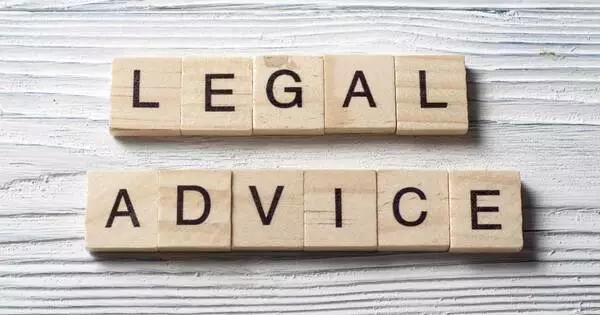Legal advice is the professional or formal expression of an opinion about the substance or procedure of the law in relation to a specific factual situation. It is, in fact, the professional or formal expression of a legal professional’s opinion to their client, such as a lawyer or attorney. Legal advice frequently entails analyzing a set of facts and advising a person to take a particular course of action based on the applicable law. This advice is based on their knowledge of the law, legal principles, and an examination of the specific facts and circumstances of the client’s case or situation.
Legal advice is typically given in exchange for monetary or other tangible compensation. Advice provided without compensation is commonly referred to as pro bono publico (in the public interest), or simply pro bono. It’s important to remember that legal advice is case-specific and may differ depending on the laws and regulations of the jurisdiction where the issue arises. Lawyers are trained to interpret and apply the law in order to provide guidance and counsel to their clients and help them understand their rights, responsibilities, and potential legal options.
It is usually given by a solicitor, barrister, or lawyer in common law systems; in civil law systems, it is given by advocates, lawyers, or other professionals (such as tax experts, professional advisors, and so on). Receiving accurate legal advice is critical in making informed decisions, especially when dealing with contracts, disputes, family matters, criminal accusations, business transactions, and a variety of other legal issues.
Legal advice in some countries is subject to the possession of a specific licence; in others, it is simply subject to the general regulation of professional obligation and can be provided by anyone, who is usually legally responsible for the advice provided. Giving legal advice is included in the definition of unreserved legal activities under the UK’s Legal Services Act 2007, which means that it can be provided by anyone, not just a court officer. However, if it is provided by a lawyer or another person authorized by one of the front-line legal services regulators, it falls within their regulatory jurisdiction.
With the advent of the internet, many services have been established to provide individuals the power to conduct their own legal research or prepare their own legal documents. However, to obtain personalized legal advice tailored to your specific circumstances, you must consult with a licensed attorney in your jurisdiction. Online platforms such as this one can provide general information, but they should not be used to replace legal advice from a qualified professional.
















